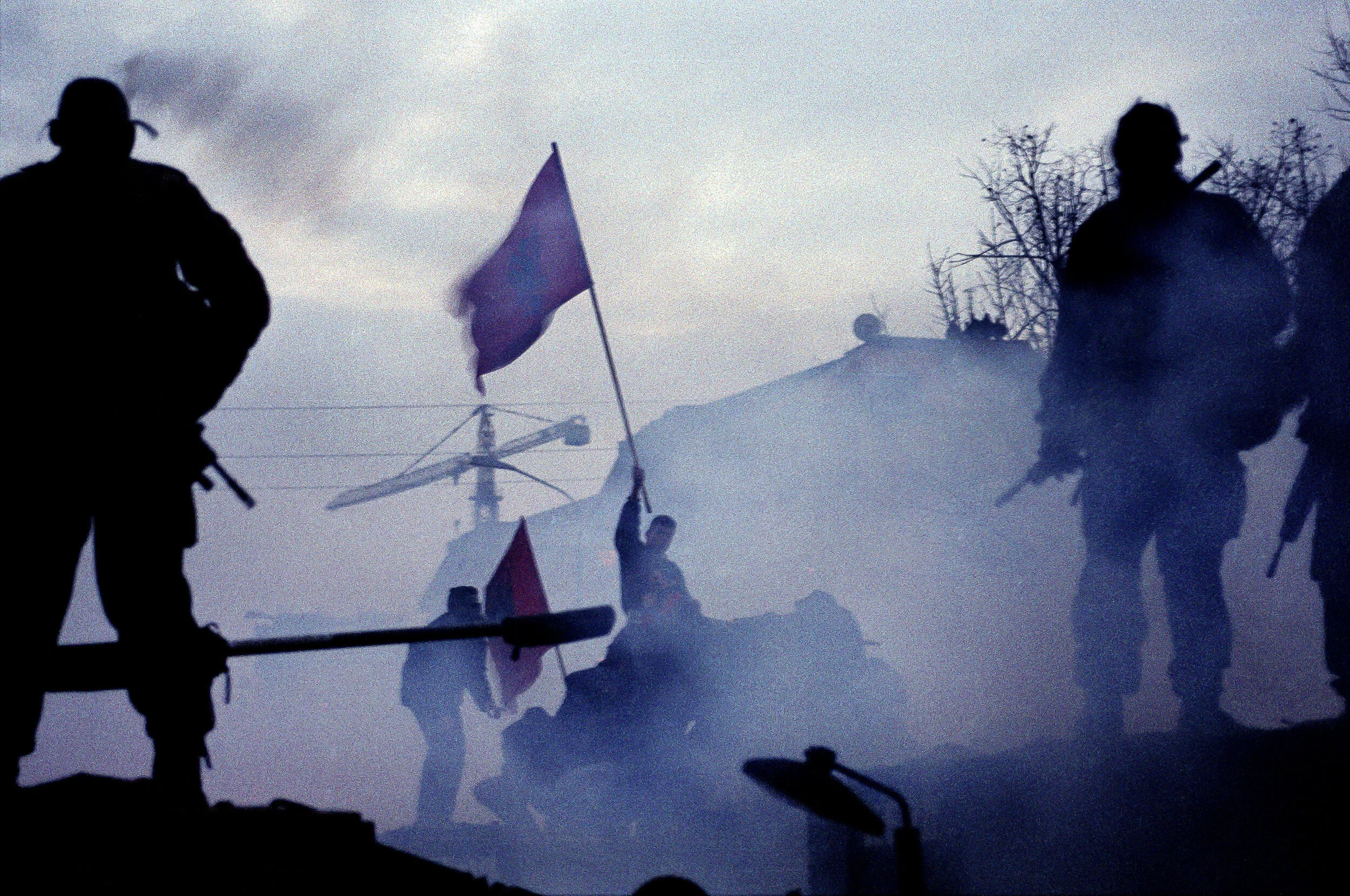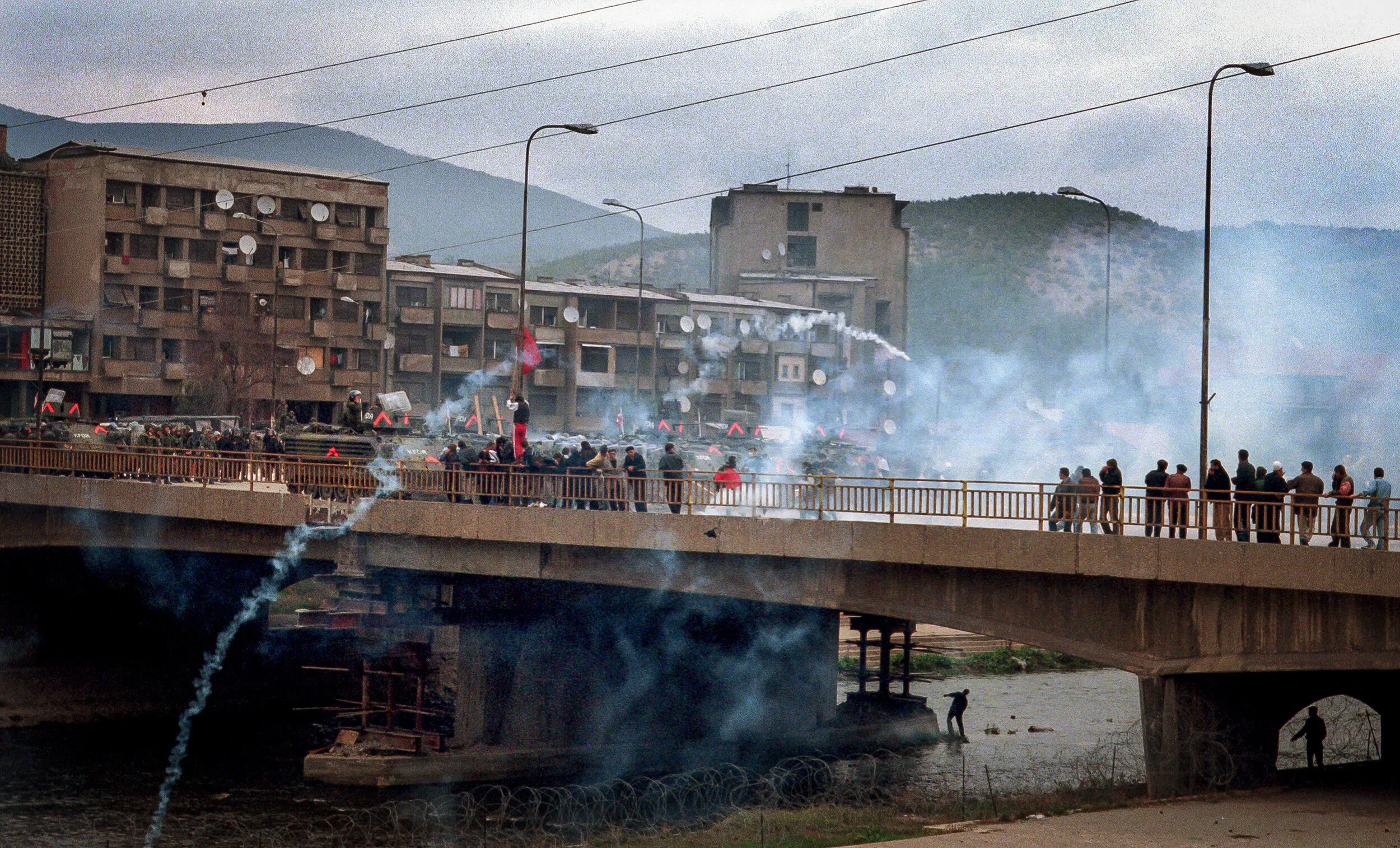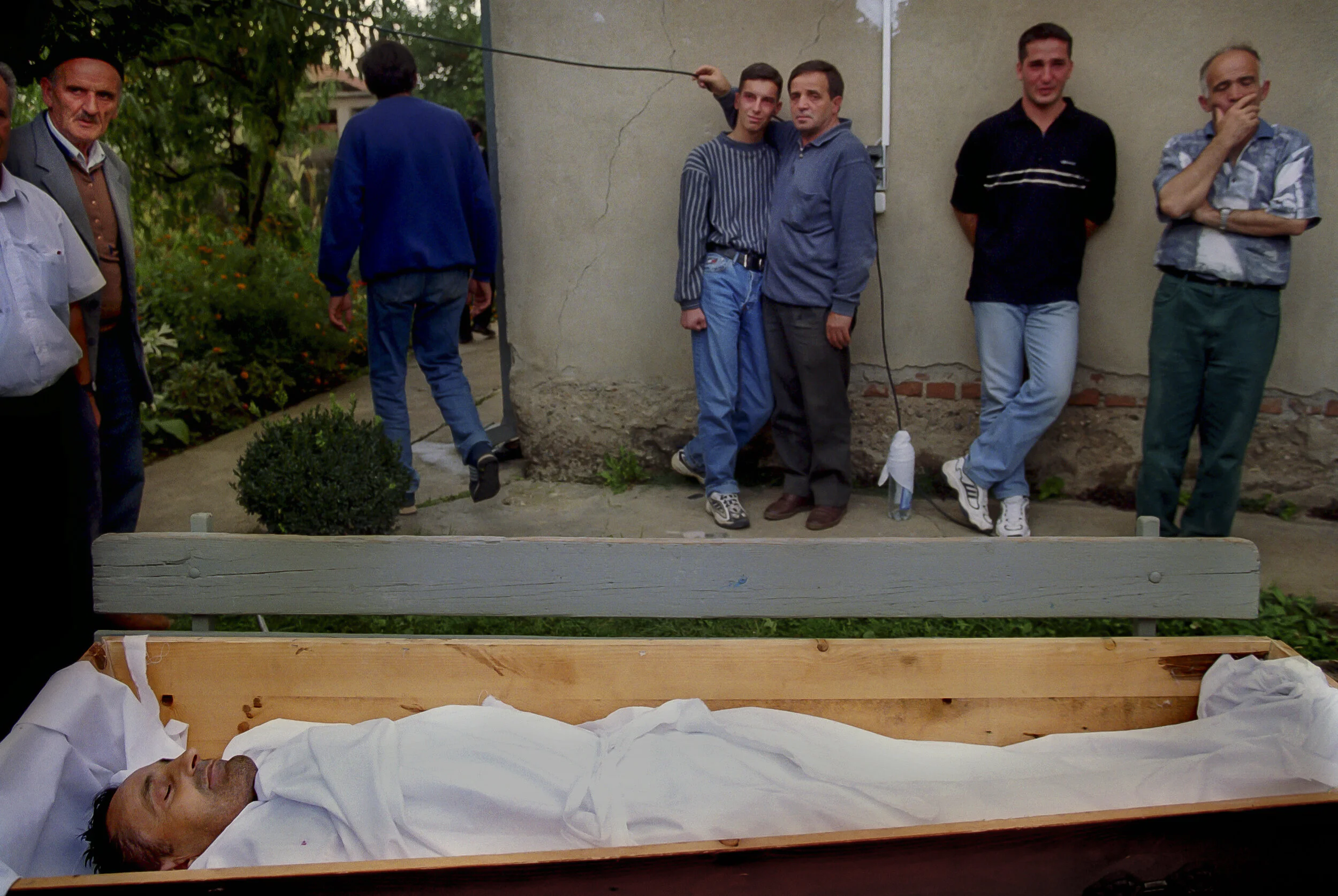AFTERMATH
When Milosevic finally capitulated and the war ended in June 1999, refugees returned en masse and the UN took control of the province. Almost immediately revenge attacks began against the Serb population and also against the Roma, who were seen by many as having collaborated with the Serb security forces.It became so dangerous for Serbs and Roma to travel openly that KFOR began a train service, which ran from just outside Prishtina, through a string of Serb villages which lay in Albanian dominated areas, on to Mitrovica and then into Serb dominated territory, ending at the village of Zvecan. Greek soldiers rode the train with mostly Serb and Roma passengers. French soldiers lined the tracks and drove alongside the train in armoured vehicles. KFOR helicopters flew overhead.Even with all this security, the train was attacked many times, by both Albanians and Serbs and the tracks were blown up three times The war in Kosovo, rather than leading to a lasting peace, instead emboldened ethnic Albanian nationalists to launch insurgencies in Southern Serbia in 2000 and Macedonia in 2001. Both conflicts at times threatened to spin out of control, but were reigned in by international diplomacy.
As for Kosovo, it continued under UN control, its status remaining unclear. With a consequent lack of foreign investment, its population suffered daily power cuts and water shortages.
General dissatisfaction with the situation, and a growing sense of impatience meant that when it was claimed in March 2004 that 3 Albanian boys had drowned because they were being chased by local Serbs, widespread rioting by the Albanian majority was quick to follow. The violence left at least 19 people dead (11 Albanian, 8 Serb), with 4000 Serbs and Roma forced from their homes and many churches destroyed or damaged. It also led to a realisation by the international community that the time had come to finally try to resolve the issue of Kosovo.
a Back to Kosovo Projects



























